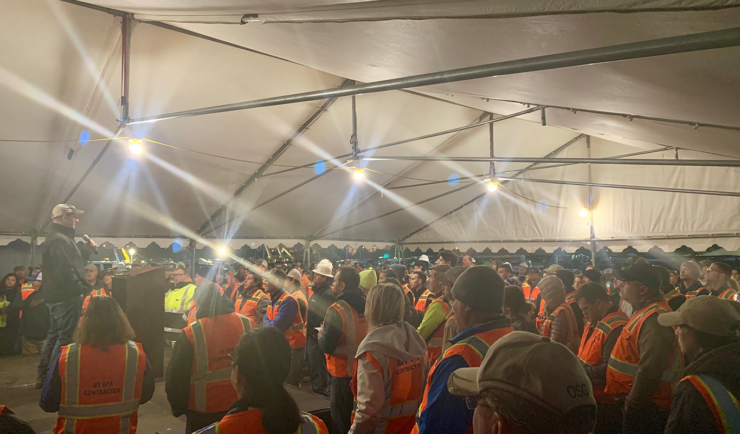Audit and Inspection Support for the National Institute of Environmental Health Sciences (NIEHS)
For more than 35 years, CSS has provided quality control assessment support to the National Toxicology Program (NTP) on studies relating to the toxicological effects of chemicals in the environment.
Audit and Inspection Support for the National Institute of Environmental Health Sciences (NIEHS).

For more than 35 years – CSS’s longest running contract – we have provided quality assessment support to the National Toxicology Program (NTP) for studies carried out on their behalf by contract laboratories regarding toxicological effects of chemicals in the environment.
CSS toxicologists verify that the required and appropriate experimental procedures were followed in every detail, that observations and results were accurately and completely recorded, that the archival data and specimens were properly organized, catalogued, and maintained to facilitate access, and that the conduct of each study was described accurately, and the data presented correctly in NTP Technical Reports. Our audit reports verify whether the information contained in the NTP Technical Report is supported by the original study records submitted to the NTP Archives.
Among the types of studies audited are pre-chronic toxicity, chronic toxicity/carcinogenicity, Reproductive Assessment by Continuous Breeding (RACB), Modified One Generation (MOG), developmental toxicity (including teratological endpoints), behavioral and neurotoxicity, immunotoxicity, and toxicokinetic. Our audit tasks have recently been expanded to include draft manuscripts of research studies being prepared for publication.
Example studies include:
Bisphenol A (BPA) used to manufacture polycarbonate plastics. This type of plastic was used to make some types of beverage containers, compact disks, plastic dinnerware, impact-resistant safety equipment, automobile parts, and toys;
Radiofrequency radiation emitted by cell phones;
Polyfluoroalkyl substances (PFAS) used in an extensive number of consumer products (Teflon). These ‘forever chemicals’ are extremely resistant to degradation in the environment;
Glyphosate, the most heavily used herbicide world-wide (the active ingredient in Roundup).
Additional Projects

IT Support to NOAA Fisheries
Our IT services support included developing and integrating information management systems central to NOAA Fisheries’ management and protection of living marine resources and their habitats

NUCO Oil Pit removal
CSS supported EPA as the field team leader on a removal assessment at an abandoned oil pit site in Oklahoma.

Red Hill Drinking Water Crisis
CSS supported the U.S. EPA Red Hill response operations in Hawaii in early 2022.

Get in touch
Contact us to learn more about our projects, capabilities, solutions, and service offerings.







